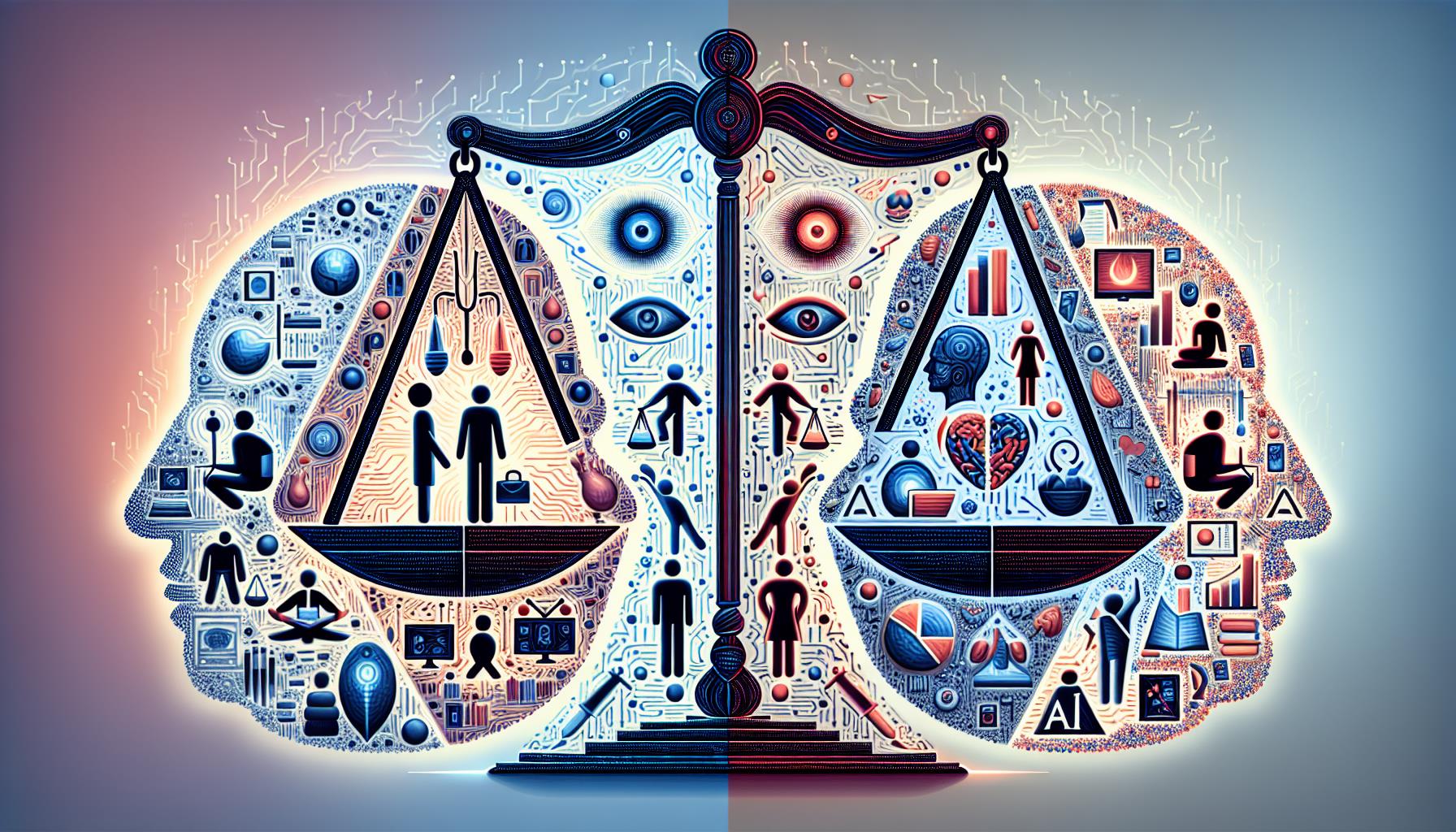As artificial intelligence (AI) weaves itself into the fabric of daily life, its development and deployment raise pressing ethical questions. The integration of AI technologies in various sectors, from healthcare to finance, has demonstrated immense benefits, including improved efficiency and the discovery of innovative solutions to longstanding problems. However, this rapid integration has also brought to light significant concerns regarding privacy, bias, accountability, and the impact on employment. These issues have ignited a global debate among technologists, policymakers, and the public, focusing on how to harness the benefits of AI while safeguarding individual rights and promoting fairness across society.
The ethical implications of AI are vast and complex, touching upon the very fabric of societal norms and values. Privacy concerns arise as AI systems often require vast amounts of data, including personal information, to learn and make decisions. Bias in AI, stemming from biased training data or algorithms, can perpetuate and even exacerbate societal inequalities. Furthermore, the question of accountability in decisions made by AI systems presents a legal and ethical puzzle, especially when those decisions have significant consequences on individuals’ lives. Lastly, the impact of AI on employment, through automation and the displacement of jobs, poses challenges for economic structures and individual livelihoods.
Global Initiatives and Regulations
In response to these challenges, global initiatives and proposed regulations are being developed to ensure the ethical deployment of AI. The European Union, for example, has taken a proactive stance with its proposed AI regulations, aiming to set a global standard for the responsible use of AI. These regulations focus on high-risk applications of AI, requiring transparency, accountability, and adherence to strict ethical standards. Similarly, various industry-led initiatives have emerged, proposing ethical guidelines and frameworks to guide the development of AI technologies. These efforts reflect a growing consensus on the need for clear norms and standards that prioritize human rights and societal well-being.
These initiatives represent crucial steps toward establishing a governance framework that balances innovation with ethical considerations. By setting clear guidelines and standards, stakeholders aim to foster an environment where AI can be developed and deployed responsibly, ensuring that technological advancements benefit humanity as a whole. The involvement of a broad range of stakeholders, including governments, industry leaders, civil society, and the academic community, is essential in crafting policies that reflect diverse perspectives and needs.
The Role of Public Discourse
The ongoing dialogue about the ethics of AI is pivotal in shaping a future where technology enhances, rather than undermines, our shared values and community well-being. Public discourse on AI ethics serves not only to raise awareness of the potential risks and benefits but also to ensure that the development of AI technologies is aligned with societal values and priorities. Engaging a wide range of voices in this conversation is crucial to understanding the diverse impacts of AI and to fostering an inclusive approach to its governance.
As AI continues to evolve, it is imperative that this dialogue remains open, inclusive, and dynamic. The ethical considerations of AI are not static; they will continue to change as technology advances and as our understanding of its implications deepens. Therefore, the conversation must be ongoing, adapting to new developments and emerging challenges. This ensures that ethical considerations remain at the forefront of AI development and deployment, guiding it towards outcomes that are beneficial and equitable for all members of society.
Looking Forward: The Future of AI Ethics
The future of AI ethics lies in our collective ability to navigate the complex interplay between technological innovation and ethical considerations. As AI technologies become increasingly sophisticated, the ethical challenges they present will also grow in complexity. Addressing these challenges requires a multidisciplinary approach, combining insights from technology, ethics, law, and social sciences. It also demands a commitment to continuous learning and adaptation, as the landscape of AI and its societal impacts evolve.
Ultimately, the goal is to create a future where AI technologies are developed and deployed in ways that respect human dignity, promote justice, and enhance the collective well-being. Achieving this vision will require concerted efforts from all stakeholders involved in AI development, including technologists, policymakers, and the public. By working together, we can harness the immense potential of AI to address some of humanity’s most pressing challenges while navigating the ethical complexities it presents.
The integration of artificial intelligence into our lives brings with it a host of ethical considerations that demand our attention and action. As we stand on the brink of a technological revolution, the decisions we make today will shape the future of AI and its role in society. By fostering an environment of ethical awareness and responsibility, we can ensure that AI serves as a force for good, enhancing our lives while upholding our shared values and principles. The journey ahead is complex, but with a commitment to ethical vigilance, we can navigate the challenges and opportunities that AI presents, creating a future that benefits all of humanity.
